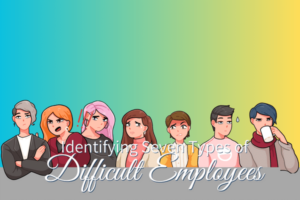
1 to 7 May 2023 is Privacy Awareness Week. At Staffr we are taking the opportunity to review how we collect, use and disclose personal information. You can be assured that your resume, interview and references data is kept in a secure database, with access restricted to only those people in the organisation involved in recruitment.
Another privacy matter that comes up is when employers ask us: “Can we request a reference from a referee the applicant did not list on their resume?”. We’re also asked, “Can we give a reference for a previous employee without them knowing?”
What laws apply to references?
The Australian Privacy laws apply to situations where a private company holds information about employees (current and former). People are permitted to access information (including reference information) to ensure the information is accurate, up-to-date and complete. So, whatever you say about a previous employee, they will be able to access it.
Additionally, under the general duty of care you should give accurate and complete information to a potential new employer when requested. New employers are entitled to sue where old employers have not provided accurate information.
So, while you can request information from a previous employer, you need to know that the applicant will be permitted to access it.
And employers should not agree to keep reference details confidential, for the same reason. Under the Privacy Act, applicants are more than likely going to be permitted to access it.
Reference Best Practice
It makes sense to follow best practice when giving and receiving references:
- If you want to contact a referee that the applicant didn’t list, ask permission from the applicant first. They may have a very valid reason for not having listed the employer.
- When interviewing an applicant, confirm that they are okay with you contacting their referees.
- When calling a referee, let them know that the applicant has given permission, and that you will be recording the details they provide.
- If a referee asks that a reference conversation be kept confidential, do not agree. There are only limited circumstances where an applicant will not be granted permission to access their data.
- If you are being asked for a reference and the applicant has not specifically asked you to provide a reference for them, the only data you should confirm is that they did or did not work for the business. Prior to giving any further information, you should have received a call or text from the applicant letting you know they have given you permission to provide a reference.
- Where you haven’t received permission, suggest to the caller that they ask the applicant to call or text you to give permission.
- Ensure that information you provide is accurate, up to date and complete.
- Only hold records for as long as is necessary.
By sticking to these guidelines, you will stay on the safe side when it comes to referees and privacy.
Have other burning HR questions? Feel free to give us a call – our Employer Advice Line is available free for your first call, on 1300 318 459.
This is general advice only. If you have privacy issues, please contact your legal team.
With thanks to the following companies/departments, whose sites provided some of the information contained in this article:
Office of the Victorian Information Commissioner (https://ovic.vic.gov.au/privacy/resources-for-organisations/privacy-during-recruitment/)
OAIC (https://www.oaic.gov.au/privacy/australian-privacy-principles/australian-privacy-principles-quick-reference)
Fair Work Ombudsman (https://www.fairwork.gov.au/tools-and-resources/best-practice-guides/workplace-privacy)
Employee Relations Strategies (https://erstrategies.com.au/reference-checks-legal-obligations/)







